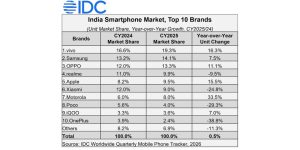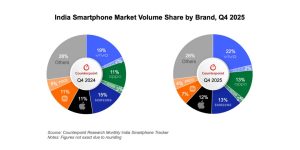The United States and the Netherlands have taken significant steps to limit China’s access to vital equipment necessary for semiconductor manufacturing. These actions come in the wake of reports regarding potential sanctions on American companies supplying AI chips to Chinese clients. By imposing stricter export controls and licensing requirements, the US and the Netherlands aim to curtail business dealings between prominent vendors such as ASML and Nvidia, and Beijing.
The Dutch government is preparing to introduce new regulations that will require a license for ASML’s second-best product line. Effective from September 1, these controls will extend restrictions on ASML, the sole provider of advanced lithography equipment for cutting-edge chips worldwide. While the sale of ASML’s most advanced technology, EUV lithography machines, to Chinese clients is already prohibited, the forthcoming controls will also cover ASML’s second most powerful line, DUV machines. Sales of these machines to China will require a special license. With these measures, the Netherlands seeks to limit certain equipment exports to China.
ASML’s lithography machines are crucial for producing high-performance semiconductors used in various industries, including telecommunications, automotive, and consumer electronics. These machines enable the production of smaller, more powerful, and energy-efficient chips. By imposing stricter controls on the sale of ASML’s DUV machines to China, the Netherlands aims to restrict China’s ability to develop and enhance its semiconductor industry.
In a comprehensive approach, the US plans to impose licensing requirements on the export of equipment to approximately six Chinese facilities, including a semiconductor manufacturing plant operated by SMIC, a prominent chipmaker in China. This move, part of the ongoing US-China tech war, aims to restrict specific equipment not only from Dutch companies like ASML but also from other Dutch equipment destined for targeted Chinese wafer fabs.
The US government is expected to release a list of the six semiconductor factories, which will require ASML to obtain licenses for deploying DUV (Deep Ultraviolet) equipment. However, it is anticipated that these requests for equipment licensing will likely be denied on security grounds, according to Reuters. This highlights the stringent approach the US is taking to prevent advanced semiconductor manufacturing capabilities from reaching Chinese companies associated with national security concerns.
These measures reflect the escalating efforts by the US and the Netherlands to limit China’s technological advancements in the semiconductor industry. By tightening export controls and imposing licensing requirements, both countries aim to protect their strategic interests and prevent sensitive technologies from reaching Chinese companies operating in the semiconductor sector.
The US-China tech war has been characterized by increasing trade restrictions and technological competition. Former President Donald Trump’s administration initiated the conflict by accusing Chinese firm Fujian Jinhua Integrated Circuit of trade secret theft in October 2018. Subsequent actions included blocking the sale of Dutch chip manufacturing technology to China and imposing a ban on semiconductor shipments to Huawei Technologies in May 2020.
In December 2020, the US added China’s top chipmaker SMIC, and other firms to a trade blacklist, limiting their access to advanced semiconductor production technology. These measures reflect the growing competition and security concerns in the semiconductor industry.
In September 2022, US chip designers Nvidia and Advanced Micron Devices were instructed to halt certain exports to China, affecting computing chips used for AI work. The Biden administration escalated the conflict in October 2022 by introducing comprehensive export controls, including limitations on certain semiconductor chips made using US equipment.
The intensifying actions by the US and the Netherlands signal a further tightening of restrictions on China’s access to semiconductor manufacturing tools. As China strives to achieve technological self-sufficiency and dominance in the semiconductor industry, the US and the Netherlands are actively working to protect their own technological leadership and national security interests.
The recent developments in export controls and licensing requirements demonstrate the continued battle for dominance and the protection of critical technologies between the United States and China. As the semiconductor industry remains at the forefront of technological innovation and economic growth, the actions taken by these countries will shape the future landscape of the industry and the global power dynamics surrounding it.










































































































































































